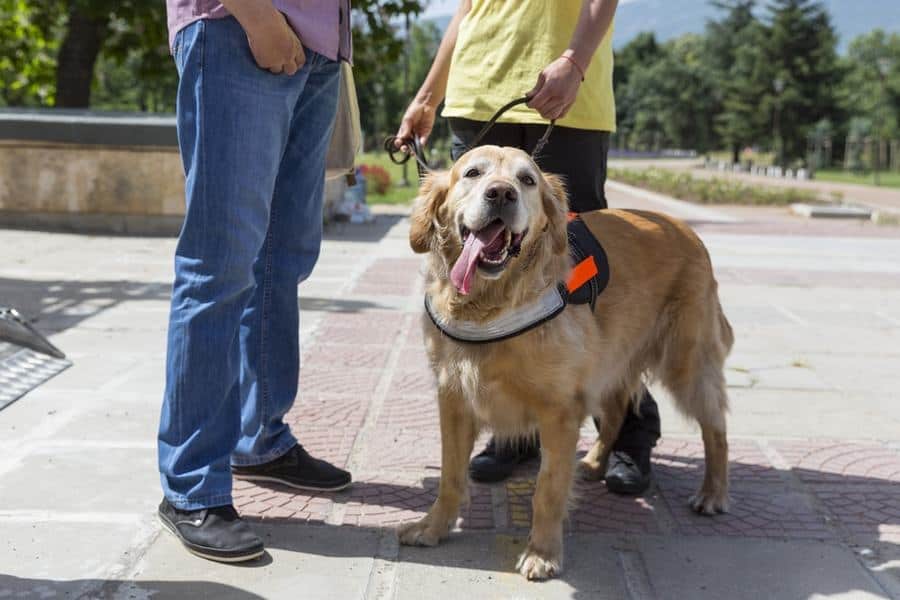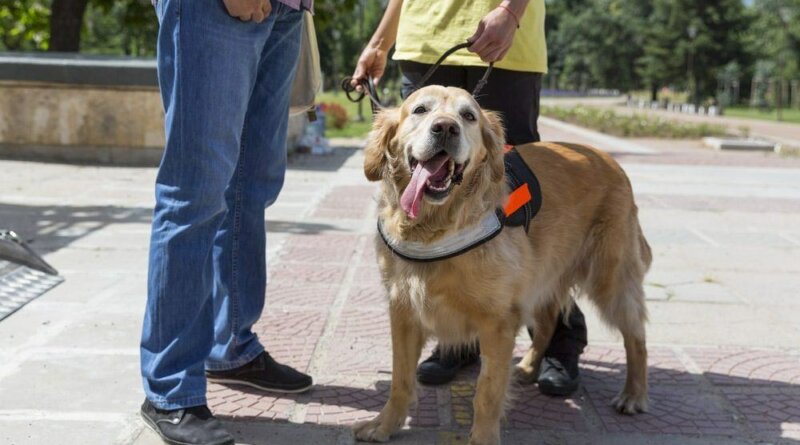Fake Service Dogs Are a Real Problem
While service dogs may come in all breeds, shapes, and sizes, providing assistance to those with disabilities ranging from vision impairment to seizure disorders, diabetes, PTSD, and any number of things in between, an increase in the number of fake service dogs is creating real problems for legitimate teams.

A ‘Service Dog Team’ is used to describe a service dog, that has been trained to meet specific disability-related needs and the handler/owner for which the dog has been trained to assist. Legitimate service dogs are trained for hundreds of hours and can perform a variety of specific tasks tailored to their handlers, such as opening doors and picking up items, sniffing out allergens and alerting to oncoming seizures, even providing stability and emotional support.
The Americans With Disabilities Act protects the rights of individuals with disabilities to be accompanied by their service dogs in public places not normally considered dog-friendly.
Many dog owners have seen a service dog team in public, legally and rightfully, walking through the mall, enjoying dinner in a restaurant, even boarding an airplane, and thought, It would be cool if I could take my dog everywhere, too. It’s not unusual or even horrible to consider, we love our dogs.
What many people fail to understand, however, is that service dogs are not ‘pets.’ Ask anyone with a service dog and they’ll certainly tell you that, while they love the dog and often credit them with saving their life, they would prefer that service dog was not a necessity in order to live a more normal life.
But a new trend among dog owners is quickly becoming a big problem for legitimate service dog teams. People are disguising untrained family pets as service dogs, complete with vests and identification cards, in order to take them anywhere and everywhere they wouldn’t normally be welcomed.
CBS Chicago reported,
A search of eBay for “service dog patches” and “service dog vests” produced more than 22,000 results. Several websites sell similar items for as much as $150 after requiring answers to just a few easy questions.
It’s all possible because, while service dogs are defined under federal law, there is no official training these dogs must follow, no central registry that they must be a part of, and no standard certification that they must receive. The ambiguity surrounding what legally defines a service dog leaves a wide opening for fraud and abuse of rights both by dog owners and by the companies that sell vests and service dog patches or ID cards to whoever opens their wallet.
This ambiguity coupled with a general lack of public understanding of ADA laws compounds the growing problem. A service dog is not legally required to wear a vest, patch, or carry any type of ID card, though many service dog teams do these things because it’s easier to just show a meaningless ID card when asked for one than it is to explain the laws to business owners, managers, and employees, and even law enforcement officers that haven’t been educated.
Additionally, because ADA laws prohibit questioning a person about their disability and from asking for evidence of a service dog’s certification, business owners and authorities are left with their hands tied.
So, what makes fake service dogs such a big problem?
Legitimate service dogs are well-trained and a necessity to their handlers. They are trained to not be disruptive or cause a scene while in public. You will never see a service dog jumping up at people, barking or growling (unless alerting their handler to a problem), or even using the bathroom inappropriately.
Fake service dogs are both a safety issue for the public and for legitimate service dogs. They negatively impact the acceptance and public opinion of service dogs and their disabled handlers.
Now, some states are trying to crack down on the problem of fake service dogs, making it a crime and attaching penalties to those passing off a dog as a service animal. Nineteen states currently have laws in place. However, to truly combat the problem, changes will have to be made at a federal level.
What do you think needs to be done to combat the ever-growing problem of fake service dogs, without infringing on the rights of those that truly need them?




